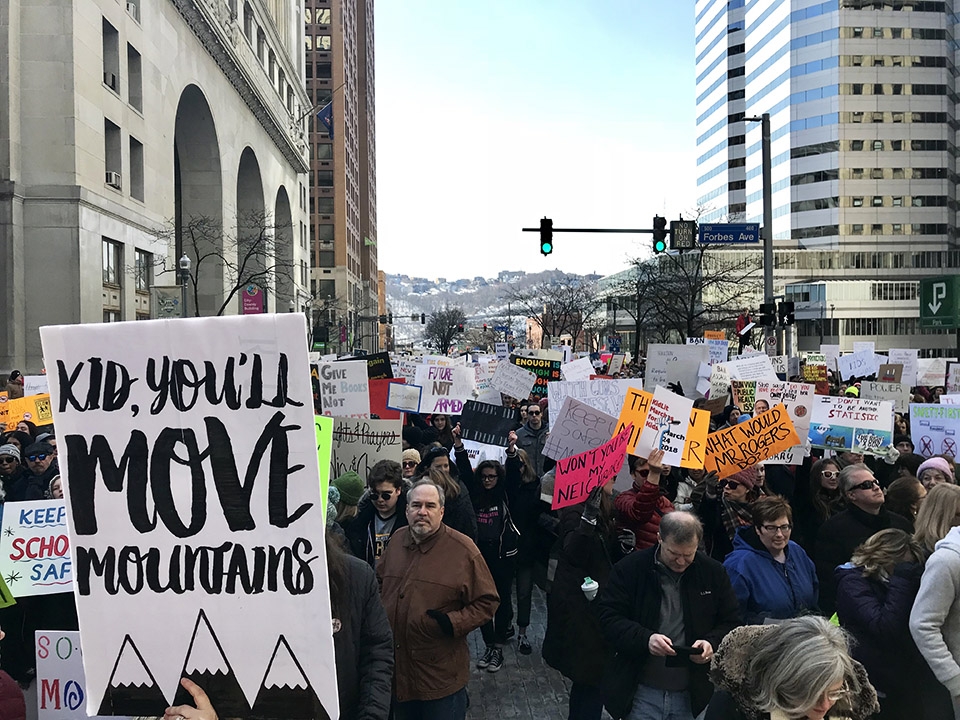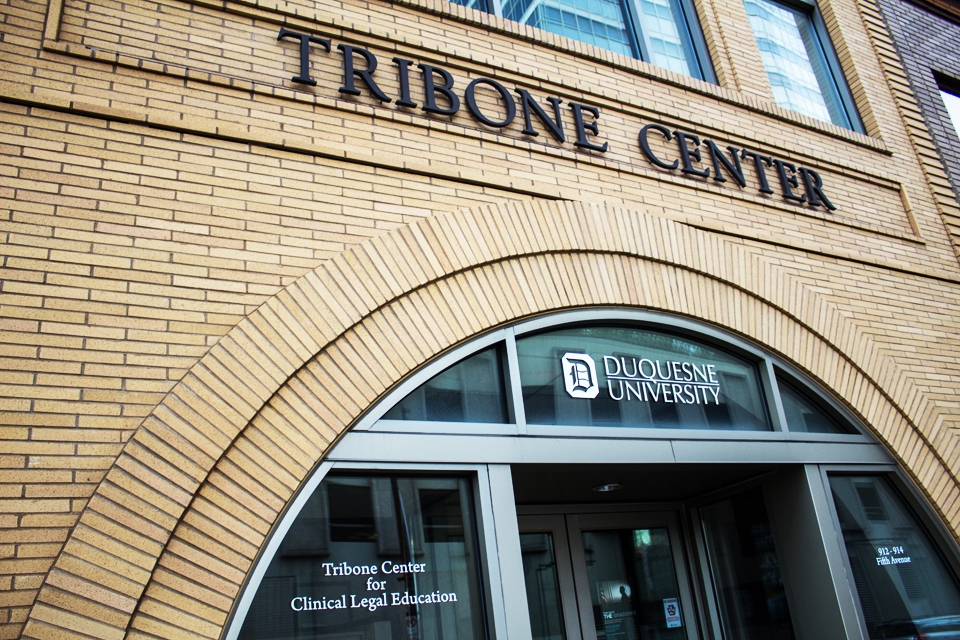
Protesters gather downtown and stand up for their beliefs during Pittsburgh’s March for Our Lives.

Protesters gather downtown and stand up for their beliefs during Pittsburgh’s March for Our Lives.
Alex Wolfe | Staff Writer
04/12/2018
In reaction to the sheer volume of students participating in the national walkouts, many high schools were faced with a choice: to punish their students for their actions or to support their right to protest. President Ken Gormley announced in late February that students’ admissions decisions to Duquesne would not be changed as a result of protest-related discipline.
Many high school students were faced with the difficult decision to demonstrate or not in the face of their faculty denying them that opportunity. Some high school students, particularly seniors, were able to breathe a collective sigh of relief as universities across the country issued similar proclamations to Duquesne’s in reaction to the protests.
“Peaceful protest, civil discourse and critical thought are consistent with Duquesne University’s mission. Admission decisions for Duquesne University applicants and accepted students will in no way be affected by any disciplinary action taken by schools as a result of peaceful and lawful protests,” President Gormley said in a statement.
In fact, the decision came as a direct reaction to inquiries from many students in the accepted class of 2022 who were unsure of the potential consequences of their decision.
“With the recent national walkouts, and a few high schools mentioning potential sanctions, universities around the country, including Duquesne, began getting questions about whether school sanctions from a peaceful and lawful protest would impact an admissions decision,” Bridget Fare, chief marketing and communications officer, said.
She explained that, “while our admissions decisions have never been impacted by whether a student has been suspended for participating in a lawful protest, Duquesne opted to release a public statement to reassure prospective students that this was indeed the case.”
Duquesne is not alone in this decision, as many other high profile universities have made similar proclamations, including Carnegie Mellon University and the University of Pittsburgh. Some universities have even released statements criticizing those high schools that opt to discipline students who chose to participate in the protests.
Fare said that the statement had been issued in conjunction with many of President Gormley’s objectives regarding social discourse, a topic on which he held a discussion on March 21, concerning modern means of communication and the social impacts of technology at large.
“President Gormley has launched a series of educational sessions aimed at civil discourse. He believes strongly that students and universities play a critical role in sharing ideas and fostering greater understanding between those with different perspectives,” Fare said.
Fare suggested that the university plans to keep their policies consistent.
“The University will continue to process applications as it always has. As noted above, applicants and accepted students will not be affected by any disciplinary action taken by schools as a result of peaceful and lawful protests,” she said.



